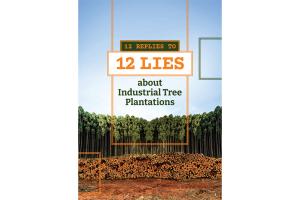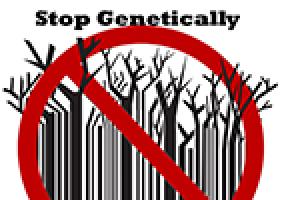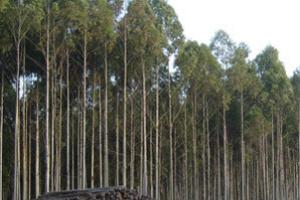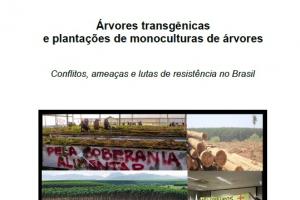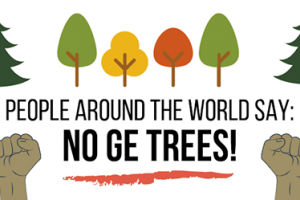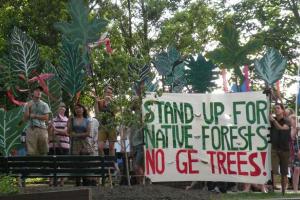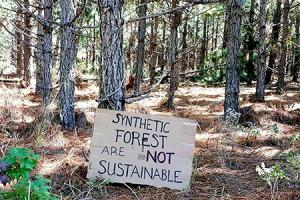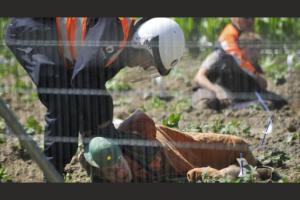GE-Trees
Genetic engineering of trees can include manipulating genes to be overactive or inactive, or inserting genes from one species into another. This is done, among other reasons, to obtain varieties with higher productivity or increased resistance to cold or drought. Little is known about the biological consequences of such manipulation. The international campaign, Stop GE Trees, disseminates information and provides support to communities directly affected by this threat.
This publication aims to alert community groups and activists about the corporate push for a new round of large-scale tree plantation expansion.
Only available in Portuguese.
The global Campaign to STOP Genetically Engineered Trees is in Raleigh, NC during the 2019 Tree Biotechnology Conference of the International Union of Forest Research Organizations (IUFRO).
Transgenic Trees Will Expand the Disaster of Tree Plantations. Already in Chile monoculture plantations of pine and eucalyptus are producing terrible impacts on rural communities, on people’s health, access to water, agriculture and forests.
